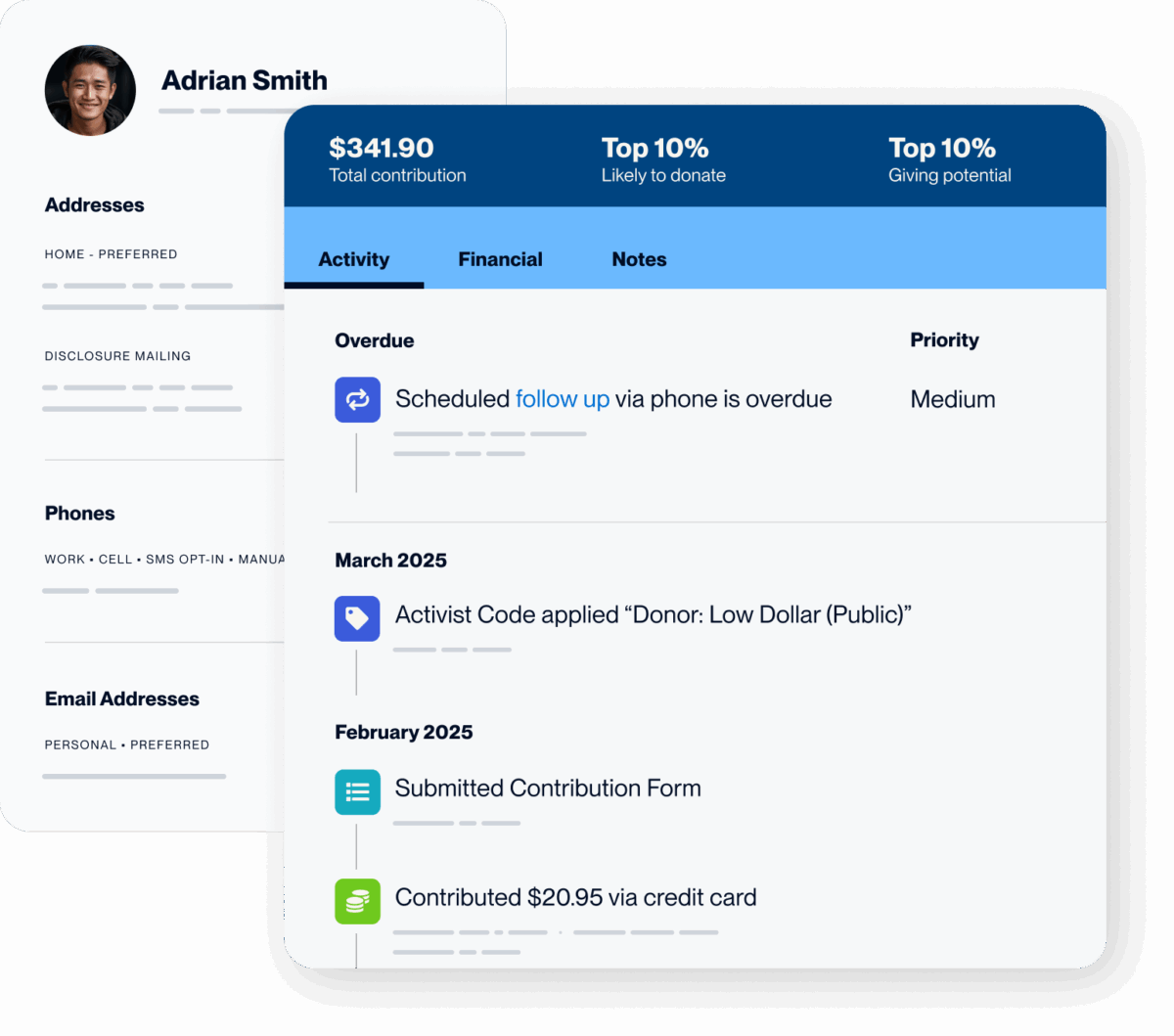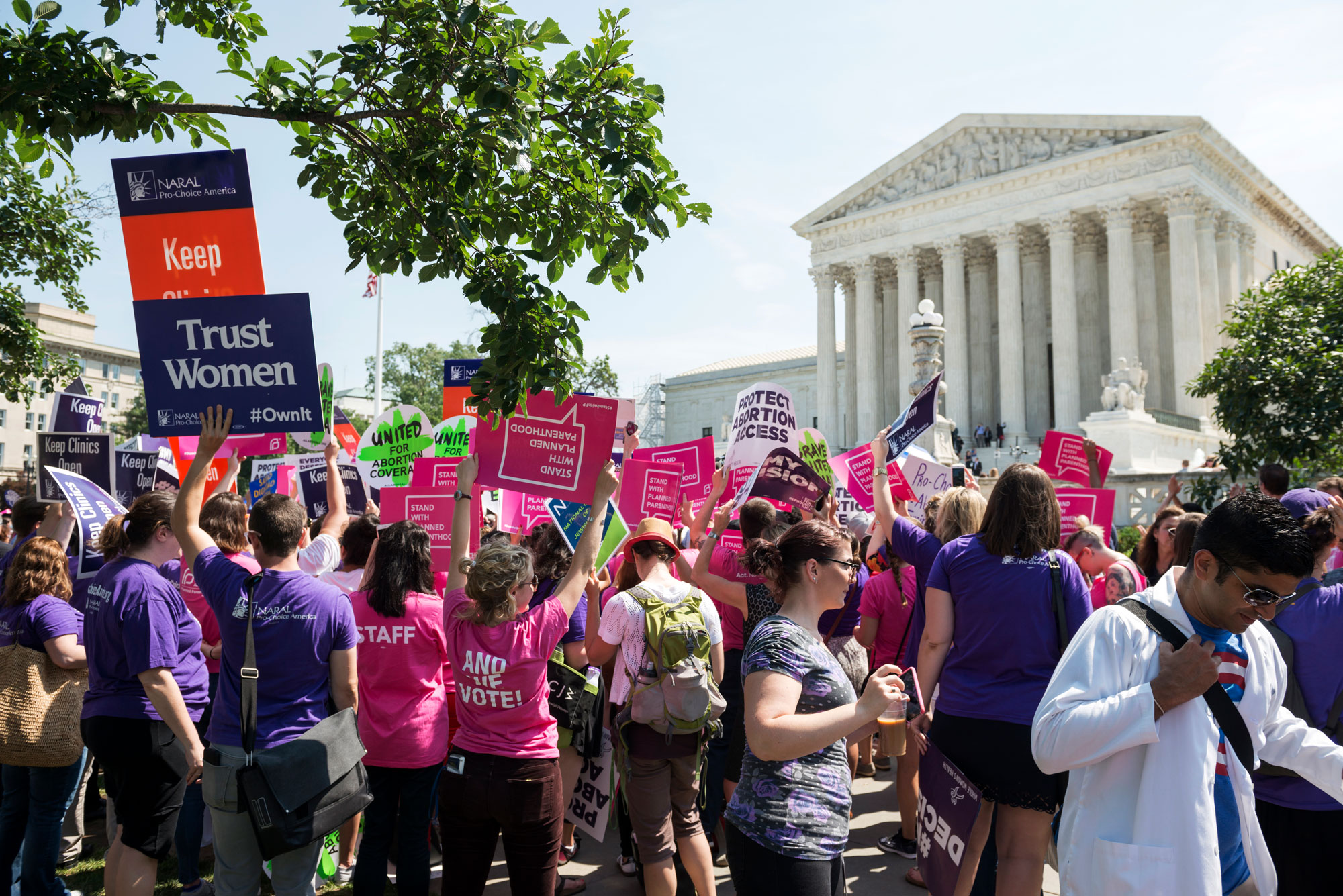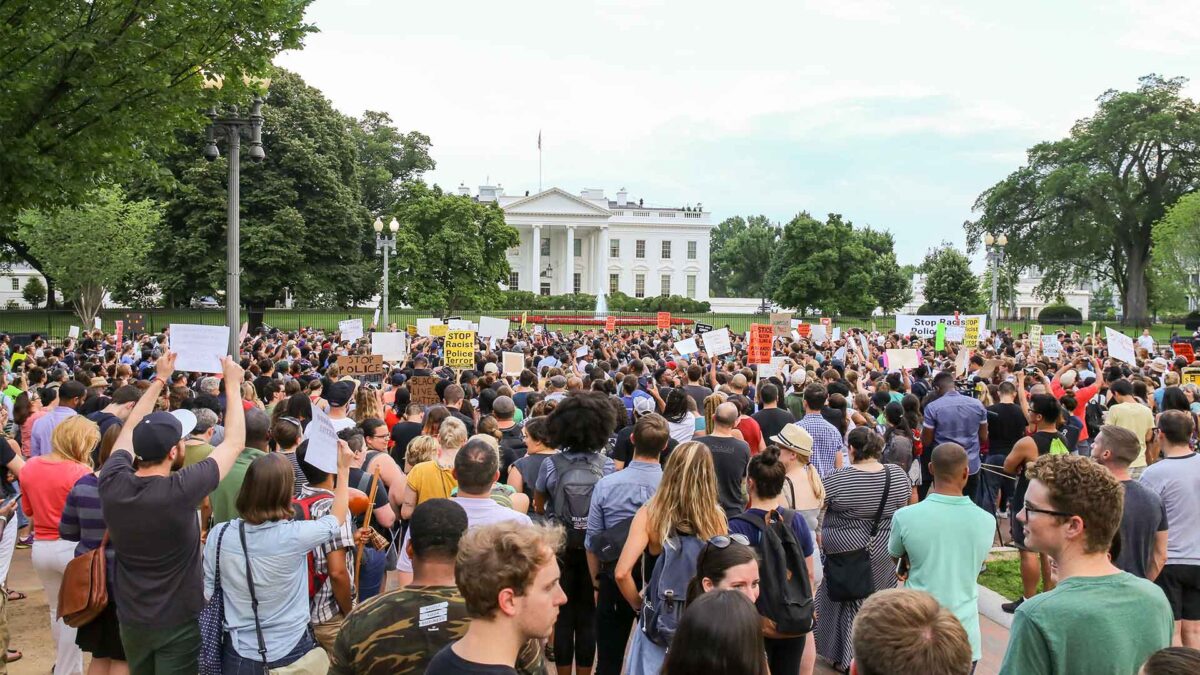
Organize.
Activate. Win.
Technology powering the Democratic and progressive movement
For campaigns, nonprofits, unions, and PACs, NGP VAN provides the tools to raise more money, grow your base, and advance your mission. Our integrated platform helps you run smarter fundraising, organizing, and advocacy programs that win support and drive meaningful change.
Purpose-driven.
Powerful. Proven.
For more than two decades, NGP VAN has equipped Democratic campaigns, progressive nonprofits, unions, PACs, and advocacy groups with the technology they rely on to win and advance their missions. Our integrated tools for fundraising, compliance, organizing, advocacy, and member engagement help teams raise more, reach supporters, and drive impact — all within a connected platform built for today’s movements.

NGP
Raise more with NGP — the fundraising and compliance software trusted by campaigns and causes nationwide. Track donor activity, build targeted outreach, and process contributions through mobile-friendly forms with low 3.25% fees. Generate accurate, jurisdiction-specific reports, reduce errors, and stay aligned with filing requirements so your team can focus on strategy, not spreadsheets.
Organizing
Organize smarter with software trusted by Democratic campaigns, nonprofits, unions, and advocacy groups. Target voters, build universes, and run canvassing, phone banking, and texting programs at scale. With VAN, MiniVAN, OpenVPB, and Mobilize working together, you can track interactions in real time, rally volunteers, and drive the outreach needed to win or advance your cause.
Advocacy
Advance your mission with advocacy tools that transform supporter energy into meaningful action. Create petitions, pledges, and targeted Online Actions that connect advocates directly with decision makers through email, calls, and social channels. Every action syncs to your database, giving you real-time insights to grow your base, influence public policy, and sustain grassroots advocacy campaigns throughout the year.
Member Organizing
Strengthen your membership program with tools built for unions and member-driven organizations. Track member data, dues, participation, and worksite activity in one system. Use integrated email, phone, and SMS outreach to engage members, coordinate campaigns, and mobilize across locals or affiliates. With clear reporting and streamlined workflows, you can grow membership and build long-term organizing power.
A history of powering progress
NGP VAN supports campaigns and movements of every size — from historic, complex races to thousands of grassroots efforts nationwide. From powering first-time candidates to presidential runs, and from local unions to national coalitions, we bring deep expertise and a proven suite of tools to help advance the Democratic and progressive movement.

Campaigns
Built for every campaign
From city hall to the presidency, NGP VAN equips campaigns of every size with the tools they need to fundraise effectively, stay compliant, organize voters, and win. Whether you’re running a local race or a competitive statewide or federal campaign, NGP VAN helps teams engage supporters, manage data, and execute smart, efficient programs.

Progressive Nonprofits & Advocacy Organizations
Fuel your mission
To advance the causes that matter to all of us, progressive nonprofits and advocacy organizations use our technology to fundraise, advocate, and turn supporter energy into meaningful action. With integrated engagement, outreach, and data management tools, they build sustained momentum and drive impact at every level.

Labor Unions
Organize members
and build power
Unions rely on our technology to grow their base, mobilize members, and win campaigns for better contracts, wages, and rights for all workers. By unifying member data, communications, and organizing workflows, they can strengthen participation and coordinate efforts across worksites and locals.

PACs
Increase your influence
Political action committees trust our software to raise funds, manage compliance, and maximize their influence on elections and policy. With powerful tools for outreach, reporting, and donor engagement, PACs can run more strategic programs and drive results where they matter most.
Resources to advance
your campaign or cause
Guides, templates, and case studies designed to help campaigns, PACs, unions, and nonprofits raise more, organize smarter, and build long-term power — giving teams practical tools and proven strategies they can apply at every stage of their work.
Guides
How to win your local election
The Definitive Guide to Researching, Planning, and Winning Your Campaign for Local Office Have you thought about running for political office? Have you already declared your candidacy? Not sure how to run a campaign, the steps involved, or how many votes you need to win? If you answered yes to any of these questions, our newest guide has all the information you need to research, plan, manage, and win your campaign for local office.
Guides
The definitive distributed organizing guide
Learn how to tap into the networks of your supporters to force multiply your work using best practices found in The Definitive Distributed Organizing Guide from NGP VAN and Tectonica. This essential organizing guide provides the knowledge you need to create a people-powered approach to your organizing outreach, and was developed for campaign staff, PACs, 501(c)(4), labor unions, and other advocacy groups looking for a way to leverage supporter engagement to help achieve their voter outreach and organizing goals.



